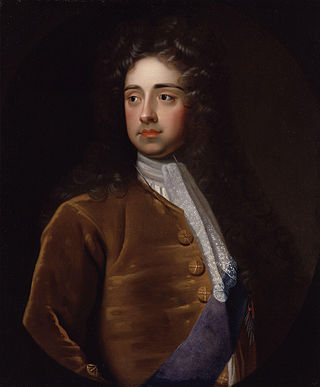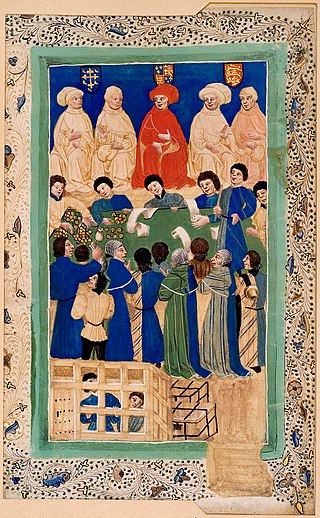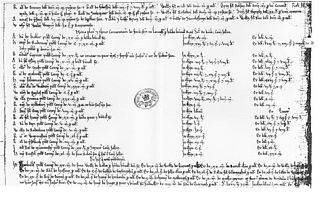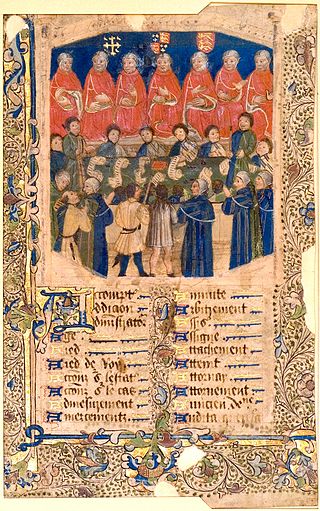Related Research Articles

The chancellor of the exchequer, often abbreviated to Chancellor, is a senior minister of the Crown within the Government of the United Kingdom, and head of Treasury. As one of the four Great Offices of State, the chancellor is a high-ranking member of the British Cabinet.

His Majesty's Treasury, occasionally referred to as the Exchequer, or more informally the Treasury, is a ministerial department of the Government of the United Kingdom. It is responsible for developing and executing the government's public finance policy and economic policy. The Treasury maintains the Online System for Central Accounting and Reporting, the replacement for the Combined Online Information System, which itemises departmental spending under thousands of category headings, and from which the Whole of Government Accounts annual financial statements are produced.

The First Lord of the Treasury is the head of the Lords Commissioners of the Treasury exercising the ancient office of Lord High Treasurer in the United Kingdom. Constitutional convention holds that the office of First Lord is held by the Prime Minister. The office is not the United Kingdom's finance minister; this role is instead held by the Chancellor of the Exchequer, who is the second lord of the Treasury.

In the civil service of the United Kingdom, His Majesty's Exchequer, or just the Exchequer, is the accounting process of central government and the government's current account in the Consolidated Fund. The term is used in various financial documents, including the latest departmental and agency annual accounts.

The Lord High Treasurer was an English government position and has been a British government position since the Acts of Union of 1707. A holder of the post would be the third-highest-ranked Great Officer of State in England, below the Lord High Steward and the Lord High Chancellor of Great Britain.

The Exchequer of Pleas, or Court of Exchequer, was a court that dealt with matters of equity, a set of legal principles based on natural law and common law in England and Wales. Originally part of the curia regis, or King's Council, the Exchequer of Pleas split from the curia in the 1190s to sit as an independent central court. The Court of Chancery's reputation for tardiness and expense resulted in much of its business transferring to the Exchequer. The Exchequer and Chancery, with similar jurisdictions, drew closer together over the years until an argument was made during the 19th century that having two seemingly identical courts was unnecessary. As a result, the Exchequer lost its equity jurisdiction. With the Judicature Acts, the Exchequer was formally dissolved as a judicial body by an Order in Council on 16 December 1880.
In the United Kingdom there are at least six Lords Commissioners of His Majesty's Treasury, serving as a commission for the ancient office of Treasurer of the Exchequer. The board consists of the First Lord of the Treasury, the Second Lord of the Treasury, and four or more junior lords acting as whips in the House of Commons to whom this title is usually applied.

John Foster, 1st Baron Oriel PC (Ire) was an Anglo-Irish politician and peer who thrice served as Chancellor of the Exchequer of Ireland and also served as the last speaker of the Irish House of Commons.

The Pipe rolls, sometimes called the Great rolls or the Great Rolls of the Pipe, are a collection of financial records maintained by the English Exchequer, or Treasury, and its successors, as well as the Exchequer of Ireland. The earliest date from the 12th century, and the series extends, mostly complete, from then until 1833. They form the oldest continuous series of records concerning English governance kept by the English, British, Irish and United Kingdom governments, covering a span of about 700 years. The early medieval ones are especially useful for historical study, as they are some of the earliest financial records available from the Middle Ages. A similar set of records was developed for Normandy, which was ruled by the English kings from 1066 to 1205, but the Norman Pipe rolls have not survived in a continuous series like the English.
In some common law nations, a recognizance is a conditional pledge of money undertaken by a person before a court which, if the person defaults, the person or their sureties will forfeit that sum. It is an obligation of record, entered into before a court or magistrate duly authorized, whereby the party bound acknowledges (recognizes) that they owe a personal debt to the state. A recognizance is subject to a "defeasance"; that is, the obligation will be avoided if person bound does some particular act, such as appearing in court on a particular day, or keeping the peace. In criminal cases the concept is used both as a form of bail when a person has been charged but not tried and also when a person has been found guilty at trial as an incentive not to commit further misconduct. The concept of a recognizance exists in Australia, Canada, Hong Kong, the Republic of Ireland, and the United States. Recognizances were frequently used by courts of quarter sessions, for example they make up more than 70% of surviving records for the Bedfordshire Quarter Sessions records.

The Court of Common Pleas, or Common Bench, was a common law court in the English legal system that covered "common pleas"; actions between subject and subject, which did not concern the king. Created in the late 12th to early 13th century after splitting from the Exchequer of Pleas, the Common Pleas served as one of the central English courts for around 600 years. Authorised by Magna Carta to sit in a fixed location, the Common Pleas sat in Westminster Hall for its entire existence, joined by the Exchequer of Pleas and Court of King's Bench.

A chamberlain is a senior royal official in charge of managing a royal household. Historically, the chamberlain superintends the arrangement of domestic affairs and was often also charged with receiving and paying out money kept in the royal chamber. The position was usually awarded as an honour to a high-ranking member of the nobility (nobleman) or the clergy, often a royal favourite. Roman emperors appointed this officer under the title of cubicularius. The Chamberlain of the Holy Roman Church enjoys very extensive powers, having the revenues of the papal household under his charge. As a sign of their dignity, chamberlains bore a key, which in the seventeenth century was often silvered, and actually fitted the door-locks of chamber rooms. Since the eighteenth century, it has turned into a merely symbolic, albeit splendid, rank-insignia of gilded bronze. In many countries there are ceremonial posts associated with the household of the sovereign.

The Chronicles and Memorials of Great Britain and Ireland during the Middle Ages, widely known as the Rolls Series, is a major collection of British and Irish historical materials and primary sources published as 99 works in 253 volumes between 1858 and 1911. Almost all the great medieval English chronicles were included: most existing editions, published by scholars of the 17th and 18th centuries, were considered to be unsatisfactory. The scope was also extended to include legendary, folklore and hagiographical materials, and archival records and legal tracts.

The Exchequer Secretary to the Treasury is a junior ministerial post in His Majesty's Treasury, ranked below the First Lord of the Treasury, the Chancellor of the Exchequer, the Chief Secretary to the Treasury, the Paymaster General and the Financial Secretary to the Treasury, and alongside the Economic Secretary to the Treasury. It ranks at Parliamentary Secretary level and the holder does not attend Cabinet.
The Teller of the Receipt of the Exchequer was an office in the English Exchequer.

The Exchequer of Ireland was a body in the Kingdom of Ireland tasked with collecting royal revenue. Modelled on the English Exchequer, it was created in 1210 after King John of England applied English law and legal structure to his Lordship of Ireland. The Exchequer was divided into two parts; the Superior Exchequer, which acted as a court of equity and revenue in a way similar to the English Exchequer of Pleas, and the Inferior Exchequer, which directly collected revenue from those who owed The Crown money, principally rents for Crown lands. The Exchequer primarily worked in a way similar to the English legal system, holding a similar jurisdiction. Following the Act of Union 1800, which incorporated Ireland into the United Kingdom, the Exchequer was merged with the English Exchequer in 1817 and ceased to function as an independent body, although the Irish Court of Exchequer, like other Irish courts, remained separate from the English equivalent.

A tally stick was an ancient memory aid used to record and document numbers, quantities, and messages. Tally sticks first appear as animal bones carved with notches during the Upper Palaeolithic; a notable example is the Ishango Bone. Historical reference is made by Pliny the Elder about the best wood to use for tallies, and by Marco Polo (1254–1324) who mentions the use of the tally in China. Tallies have been used for numerous purposes such as messaging and scheduling, and especially in financial and legal transactions, to the point of being currency.
An Inquisition post mortem is an English medieval or early modern record of the death, estate and heir of one of the king's tenants-in-chief, made for royal fiscal purposes. The process of making such inquisition was effected by the royal escheators in each county where the deceased held land. The earliest inq.p.m. was made in 1236, in the reign of King Henry III (1216–1272), and the practice ceased c. 1640, at the start of the English Civil War, and was finally abolished by the Tenures Abolition Act 1660, which ended the feudal system.
Alan de Neville was an English nobleman and administrator who held the office of chief forester under King Henry II of England. Before serving the king, Neville was an official of Waleran, Count of Meulan. In 1166, Neville was named chief forester, an office he held until his death. Besides his forest duties, Neville also supported the king during the Becket controversy, and was excommunicated twice by Thomas Becket, the Archbishop of Canterbury. Neville was known for the harshness he displayed in carrying out his forest office, and at least one monastic chronicle claimed that he "most evilly vexed the various provinces throughout England".

Provincial Finance and Accounts Service / Provincial Civil Service (Finance), often abbreviated to as PFAS or PCS (Finance) is one of the premier Group A state civil service under Executive branch of Government of Uttar Pradesh responsible for Finance Administration of the state.
References
- ↑ One or more of the preceding sentences incorporates text from a publication now in the public domain : Chisholm, Hugh, ed. (1911). "Estreat". Encyclopædia Britannica . Vol. 9 (11th ed.). Cambridge University Press. p. 801.